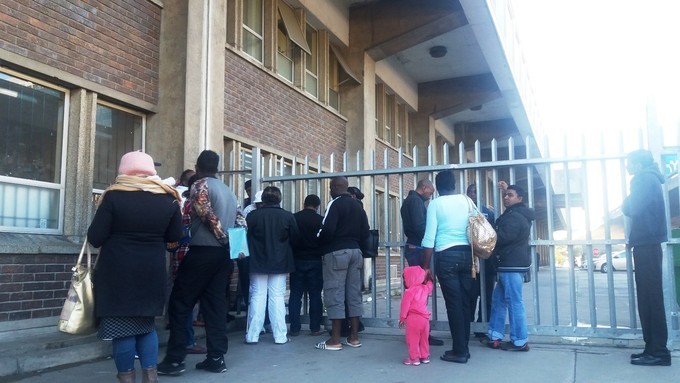Court setback for immigrants: Cape Town refugee office may stay closed
But an appeal is likely
On 24 June, the Cape Town High Court upheld a decision to keep the Cape Town Refugee Reception Office (CTRRO) closed. The Scalabrini Centre and Others had challenged the Director General of Home Affairs’ decision to keep the office closed after being ordered to re-examine the decision and to do further research.
The Director General claims it is too difficult to procure sustainable space for the CTRRO. In all of its three former locations, neighbouring residents and businesses have complained that the high numbers of refugees make the office a public nuisance. The CTRRO has been ordered to vacate two of its three former premises.
The Scalabrini Centre argued that the difficulties in finding a location were to be expected, and it did not change the fact that Refugee Reception Offices (RROs) are necessary to protect the constitutional rights of asylum seekers. However, the judge upheld the claim that the difficulty in finding a location justified closing the office down, in spite of the burden placed on asylum seekers.
Refugees arriving in South Africa must apply for an asylum seeker’s permit in person at an RRO. The asylum seeker must also return to the RRO every two to six months to renew their documents. Without up-to-date documents, refugees may not work in the country and can be deported. Currently, the only operating RROs are in Musina, Pretoria and Durban, all of them over 1,500 km from Cape Town.
The High Court’s decision contrasts with a recent Supreme Court of Appeal (SCA) judgment dealing with the Port Elizabeth Refugee Reception Office (PERRO). The department closed the PERRO, but after a legal battle, the SCA ordered the PERRO to be reopened. (The Constitutional Court subsequently refused the Director General’s appeal, and the PERRO is required to reopen by 1 July.)
The SCA in the PERRO case ruled that the decision to open or close RROs is an executive decision and it therefore only has to be rational, not reasonable. (In our courts, rationality requires only a comprehensible, logical connection between the decision and the reason for it. Reasonableness requires, in addition, that the grounds for the decision be capable of reasonable justification. Rationality is very easy to achieve. Reasonableness is much more demanding.)
The SCA ruling stated, “The asylum application process is invariably a protracted one. Timely access to an RRO is thus critical not just for asylum seekers to legalise their stay in this country, but also for the effective protection of their rights.”
Nevertheless, Judge Daniel Dlodlo ruled that the CTRRO may remain closed.
In court, the Director General of Home Affairs claimed that the refugee offices currently operating are processing applications quickly, and there are fewer asylum seekers entering South Africa. So, he claimed, an office in Cape Town is not necessary to enact the Refugee Act.
The Director General stated that asylum seekers are free to live wherever they like in the country, and do not have to live near an RRO, therefore the location of RROs does not impede upon the rights of asylum seekers.
Dlodlo ruled that the Refugee Act is being carried out sufficiently by the current RROs, so the decision to close the CTRRO was rational. Therefore, he cannot compel the Director General to reopen the CTRRO.
Lawyers for client said they were disappointed with the ruling and will be seeking leave to appeal.
See more: Background on the case.
Support independent journalism
Donate using Payfast

Don't miss out on the latest news
We respect your privacy, and promise we won't spam you.
Next: No justice for Patrick Sobutyu two years after he was shot by police
Previous: City promises first affordable housing in CBD since 1994
© 2016 GroundUp. 
This article is licensed under a Creative Commons Attribution-NoDerivatives 4.0 International License.
You may republish this article, so long as you credit the authors and GroundUp, and do not change the text. Please include a link back to the original article.

